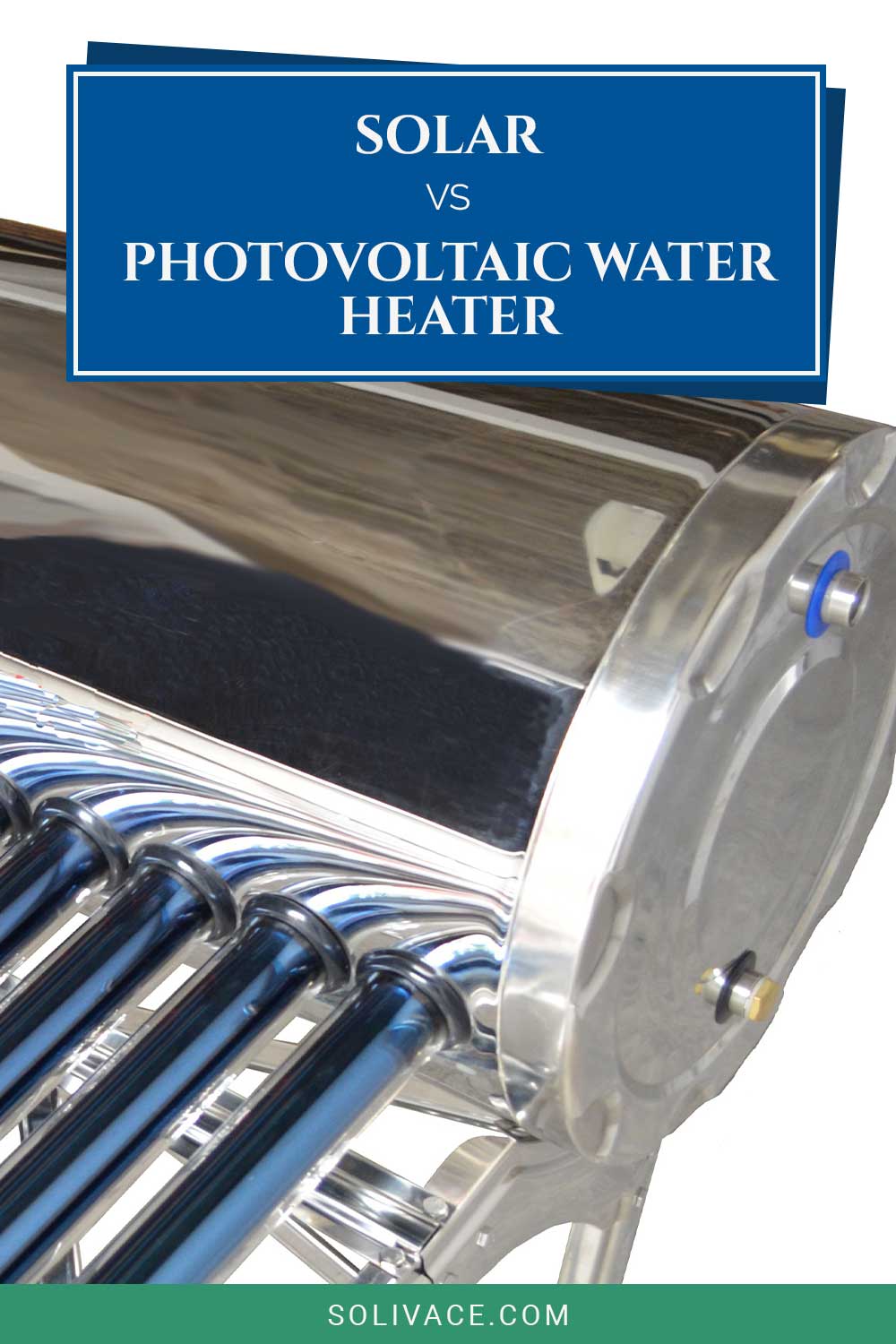Solar vs. Photovoltaic Water Heater
We may earn commissions for purchases made through links on our site. Learn more on our about us page.
The sun’s rays have enough energy to travel across space and provide both light and heat to the earth; from these photonic particles, modern solar panel technology can harness this power in both heat and light forms.
Modern inventors have created a multitude of different solar power collection devices and gadgets that have led to a change in energy consumption, two solar-powered concepts we will discuss are the Solar water heater and the photovoltaic solar cell.
The photovoltaic effect is when solar cells come in contact with sunlight. The sun-facing cells instantly heat up, creating a PN junction, where electrons can jump freely to the cooler cells below, creating an electric charge.
Solar water heaters come in two separate forms: direct and indirect circulation systems.

What are the Differences?
For one, the photovoltaic process charges the solar water heaters’ panels to create the conditions needed for the heated water.
Differences will be in the purpose of the power collection. For example, a water heater will need the heat from the sun to heat water which then moves through the system.
This will take cold water from outside the home and draw it through the solar panel array, where the water is heated and then sent back into the house to be stored or used.
Photovoltaic processes for the needs of electricity collection and usage; for the home or larger power grids.
What are the Similarities?
Even though these two forms of solar power utilization are used for different purposes, similarities remain in the collection of the sun’s light. Each system starts with a set of solar panels, which will heat the solar cells using the sun’s warming energy.
These heated cells will create the convections needed for the water heater’s needs while also creating the needed PN junction vacuum between the inner cells of the panels to create the electric charge needed for the circuit to work.
Next, the circuits will be similar to each other. Even though one will run with a circuit built of water, the other will be of copper wire, solar system equipment, and battery coils.
Pros and Cons: Solar Water Heater vs. Photovoltaic
The pro for an indirect circulation hot water heater system will be the consent warmth of the water will keep the pipes and water systems from freezing in colder environments.
The obvious con will be the natural conflict between having electric units running with water in the vicinity, which carries a risk of electrocution along with other dangers to property and others.
The pro for the photovoltaic process systems will be the ease with which these panels produce electricity, point them in the right direction (or place them on a sunflower-patterned moving track that follows the sun), and collect power.
The con will be the overall scientific community’s assertion that the technology can work more efficiently and store that power with more advanced battery tech.
Which one is More Common?
There is going to be a lack of heated water systems that utilize the power from the sun. Most folks live in the city and use the municipal utilities that the local governments provide.
This simple fact will be the difference maker between both of these solar-powered systems since most suburban homes will have access to solar panel electric-powered systems, which are designed for the standard rooftops.
Not many water heater systems will have this convenience, but as smart home technology develops and evolves with the advancements of power collection technology.
There will be innovative new systems that will direct the solar energy to specialized systems throughout the home.
Which one is More Efficient?
There is hardly going to be a comparison between these two types of systems, but when it comes to the efficiency of the indirect circulation of hot water systems, there is no competition.
The water-heated systems will keep at a relatively steady temperature, which needs loads of energy to change even a single degree. This will keep the electricity needs to a minimum and save power.
The photovoltaic systems will be on an improvement track. Many scientists have come to an agreement that current solar panel technology can be improved in efficiency and storage capabilities.
Looking towards the future, these types of systems may become the more efficient form of solar power utilization.
Final Thoughts on Solar Water Heater vs. Photovoltaic
The hot water systems being referred to will be best suited for those that live in rural areas, are disconnected from the local municipal utility services, or are looking to be self-sustainable power solutions.
Solar power technology is on the rise, and innovations and new inventions are always coming out.



Leave a Reply
You must be logged in to post a comment.